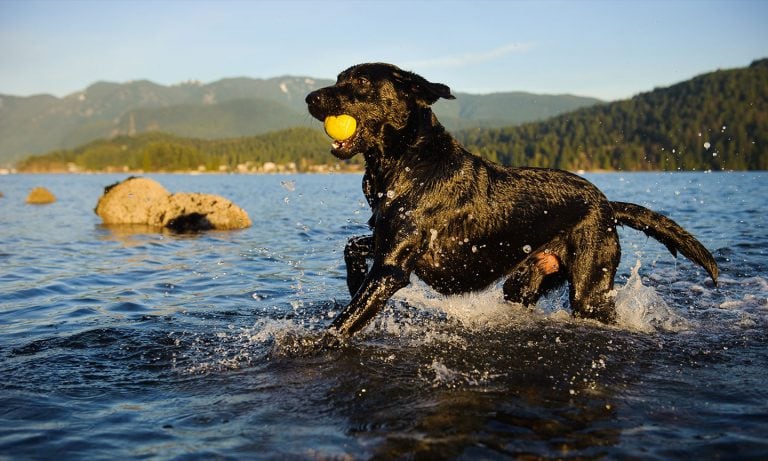Labrador Retriever vs Beagle

Breed Snapshot
Best For
The Labrador Retriever is one of the most popular dog breeds in America, known for their friendliness, intelligence and outgoing nature. These high-energy, athletic dogs require ample exercise and thrive in active households.
Labrador Retriever Temperament
Cheerful and animated, this large dog breed has stamina and energy to spare, able to keep up with your family and all your activities. You’ll want to funnel that energy into positive outlets, like outdoor activities and training. And thanks to their high intelligence, learning commands and tricks com...
Cheerful and animated, this large dog breed has stamina and energy to spare, able to keep up with your family and all your activities. You’ll want to funnel that energy into positive outlets, like outdoor activities and training. And thanks to their high intelligence, learning commands and tricks come relativity easy for them. Labrador dogs love having a job to do and excel at things like agility courses and, just like their name implies, retrieving items. In fact, their superior intelligence is why they often make great assistance dogs, working as therapy or service animals.
A people-pleaser, Labrador Retrievers have a pleasant personality and love interacting with humans. Get ready to be showered with lots of affection! They also easily make friends with dogs and other animals, including cats, although not all cats are as excited to meet them as they are—a Lab’s large size and high energy level can be a bit intimidating. Slow and controlled introductions to other family pets will help make the transition go smoothly. Considering the staying power of the Labrador dog breed’s popularity, it’s a safe bet your Lab will fit right in with the all the loved ones you choose to introduce into their life.
While they’re generally good-natured, like any dog breed, Labs may develop aggressive tendencies if they don’t receive proper training or have experienced abuse. Addressing any biting issues early on, providing proper socialization when they are puppies (aka safely exposing them to lots of new people, places and things) and working with a professional dog trainer can help avoid behavioral issues when they get older.
Labrador Retriever Traits

Breed Snapshot
Best For
Beagles, small and friendly, thrive on activity and companionship. With an affectionate nature and keen sense of smell, they make excellent family pets. They're ideal for those seeking a playful and energetic canine friend who...
Beagles, small and friendly, thrive on activity and companionship. With an affectionate nature and keen sense of smell, they make excellent family pets. They're ideal for those seeking a playful and energetic canine friend who flourishes with love and outdoor adventures.
Beagle Temperament
The Beagle’s temperament is generally joyful, determined and adventurous. They’re spunky dogs who typically get along well with others, and their curious personality means they love to play and explore. Couch potatoes they are not! In fact, they need a lot of exercise and thrive when given...
The Beagle’s temperament is generally joyful, determined and adventurous. They’re spunky dogs who typically get along well with others, and their curious personality means they love to play and explore.
Couch potatoes they are not! In fact, they need a lot of exercise and thrive when given a job to do. They were originally bred to track and hunt game, and you’ll often see them with their nose to the ground. At times they can be too driven by scents. Don’t be surprised if they smell something interesting and take off!
Known for their intelligence, a bored Beagle may get themselves into trouble. Don’t worry—Beagles are happy to tell you when they need more stimulation with their attention-getting vocalizations. A cross between a bark and a howl, the unmistakable Beagle “baying” is sharper than a bark but not as drawn out as a howl. Beagles love to join in when they hear other dogs howling or when they want to express themselves with their “Beagle noises.”
Agility training, scent work or tracking classes might be good activities to explore with these smart, strong-willed dogs. (Psst, the National Beagle Club is a good resource for events and other activities for this breed.)
While a Beagle puppy can be mouthy and chew things they shouldn’t (just like any other puppy!), the Beagle breed isn’t expected to have aggressive tendencies as an adult. These social, family dogs get along well with children and are great for active families. And since they were originally bred for hunting in packs, they also do well with other dogs, although they may need more time to adjust to cat households.




